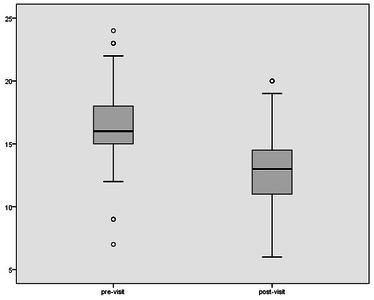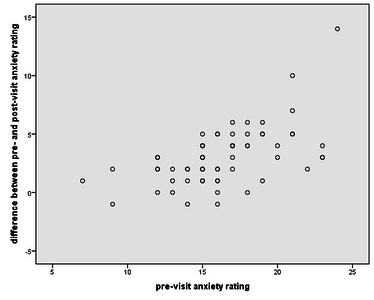Viva Survivors – the effect of peer-mentoring on pre-viva anxiety in early-years students
Knight, R.-A.  ORCID: 0000-0002-7804-7250, Dipper, L. & Cruice, M. (2018).
Viva Survivors – the effect of peer-mentoring on pre-viva anxiety in early-years students.
Studies in Higher Education, 43(1),
pp. 190-199.
doi: 10.1080/03075079.2016.1161018
ORCID: 0000-0002-7804-7250, Dipper, L. & Cruice, M. (2018).
Viva Survivors – the effect of peer-mentoring on pre-viva anxiety in early-years students.
Studies in Higher Education, 43(1),
pp. 190-199.
doi: 10.1080/03075079.2016.1161018
Abstract
Viva voce exams are used in many disciplines as a test of students’ knowledge and skills. Whilst acknowledged as a useful form of assessment, vivas commonly lead to a great deal of anxiety for students. This anxiety is also apparent for vivas in phonetics, where students must produce and recognise sounds drawn from across the world’s languages, and pervious work has shown that viewing a video of a mock-viva does not reduce this anxiety. To address anxiety prior to phonetics vivas, 63 students, across three cohorts, engaged in a brief, isolated, peer-mentoring session with previously successful students (‘viva survivors’). Anxiety about the viva was measured before and after the mentoring experience, using the short form of the State Trait Anxiety Inventory. There was a significant reduction in anxiety after mentoring, and a significant correlation between anxiety before mentoring and the decrease in anxiety after mentoring. Short-term mentoring is posited as a time- and cost-effective method to decrease viva-related anxiety across disciplines.
| Publication Type: | Article |
|---|---|
| Additional Information: | This is an Accepted Manuscript of an article published by Taylor & Francis in Studies in Higher Education, available online at http://dx.doi.org/10.1080/03075079.2016.1161018 |
| Publisher Keywords: | Anxiety, peer-mentoring, vivas, oral exams |
| Subjects: | L Education > LB Theory and practice of education > LB2300 Higher Education |
| Departments: | School of Health & Medical Sciences > Department of Allied Health |
| SWORD Depositor: |
Download (354kB) | Preview
![Figure 1 [thumbnail of Figure 1]](https://openaccess.city.ac.uk/13627/3.hassmallThumbnailVersion/revised%20figure%201.jpg)

Download (18kB) | Preview
![Figure 2 [thumbnail of Figure 2]](https://openaccess.city.ac.uk/13627/8.hassmallThumbnailVersion/revised%20figure%202.jpg)

Download (29kB) | Preview
Export
Downloads
Downloads per month over past year


 Metadata
Metadata Metadata
Metadata